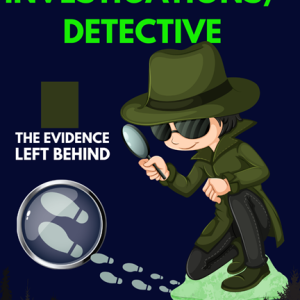Aim:
At the end of the course learners shall be able to display skills essential to perform the position of a live television broadcast i.e., broadcasting conduct radio interviews, do radio production and host live radio show, do radio news writing, recording, and editing, radio announcement and writing commercials
Job Prospects: News Broadcaster, Programmer Presenter, Disc Jockey (D.J), Reporter, Producer, Linkman, Reporter, Editor, Lobbyist, Fundraiser, Publicist, Communication Manager, Officer, Protocol Officer, Special Assistant, Corporate Affairs Officer, Public Affairs Officer or Public Relations, Communication Officer, and Programme Producer
Skills Needed: Good Communication Skills, Well- Rounded Education, endurance, Social Skills, reading skills, commitment etc
Summary of the whole course
- Introduction
- Welcome and Overview of Job Requirements
-Welcome new broadcast television journalists! This training lecture will provide you with an overview of the job requirements of a broadcast television journalist and give you the tools to become successful in this role.
- Overview of the Role
-As a broadcast television journalist, you will be responsible for collecting and presenting news stories related to local, national, or global events. You will need to be organized and know how to stay on top of newsworthy topics to create compelling stories that your viewers will want to watch. Additionally, you must possess excellent communication skills; being able to write well and convey information clearly is essential for reporting relevant and accurate news coverage.
- Job Duties
- Research & Gathering Information
-Your primary responsibility as a broadcast television journalist is researching news stories that are current, dynamic, and engaging for your viewers. To gather accurate information about these topics, it is important that you have mastery over research tools such as Google Alerts or other online resources that can help track developing stories from around the world. Additionally, developing contacts within the community can be useful in gathering reliable sources for your stories; building relationships with locals can often provide valuable insights into issues affecting people near your station’s viewership area.
- Writing & Editing Stories
-Once your research has been completed and verified through reliable sources, the next step is writing and editing your story drafts, so they are succinct yet captivating enough to capture audiences’ attention while conveying all necessary facts within a given time limit (typically 5 minutes). Before submitting any draft scripts for review or filming reports with studio cameras/teleprompters/etc., always double check them against existing sources as well as basic grammar rules — accuracy in reporting is vital! Once approved by production staff at your station (or via self-review via electronic media), then it is time for shooting video footage or conducting telephone interviews with subjects affiliated with those stories before filing them officially with management personnel at the station headquarters(s).
- Reporting Live Events -In certain cases (such as ongoing court trials or breaking news events), it may be necessary for broadcast television journalists like yourself to report live from an event location as it happens (i.e., “live shot”). When this occurs, make sure all equipment required beforehand has been gathered completely: stationary/portable cameras, microphones, etc. It is also important for you remain calm under pressure during these assignments; using good judgment skills when confronted with difficult situations could prevent costly errors that could damage credibility of station broadcasts afterwards if not handled properly (and quickly!). Make sure all relevant details regarding live field assignments are effectively relayed back home base during concluding timeslots, making sure nothing key gets overlooked in terms of overall coverage quality.
III. Conclusion -By now new novice broadcast television journalists should have a better idea what their jobs entail on daily basis! Make sure always remember fundamentals this profession focusses upon accuracy, respect, integrity professionalism while accomplishing duties ahead! Good luck pursuing goals paths within field.




Reviews
There are no reviews yet.